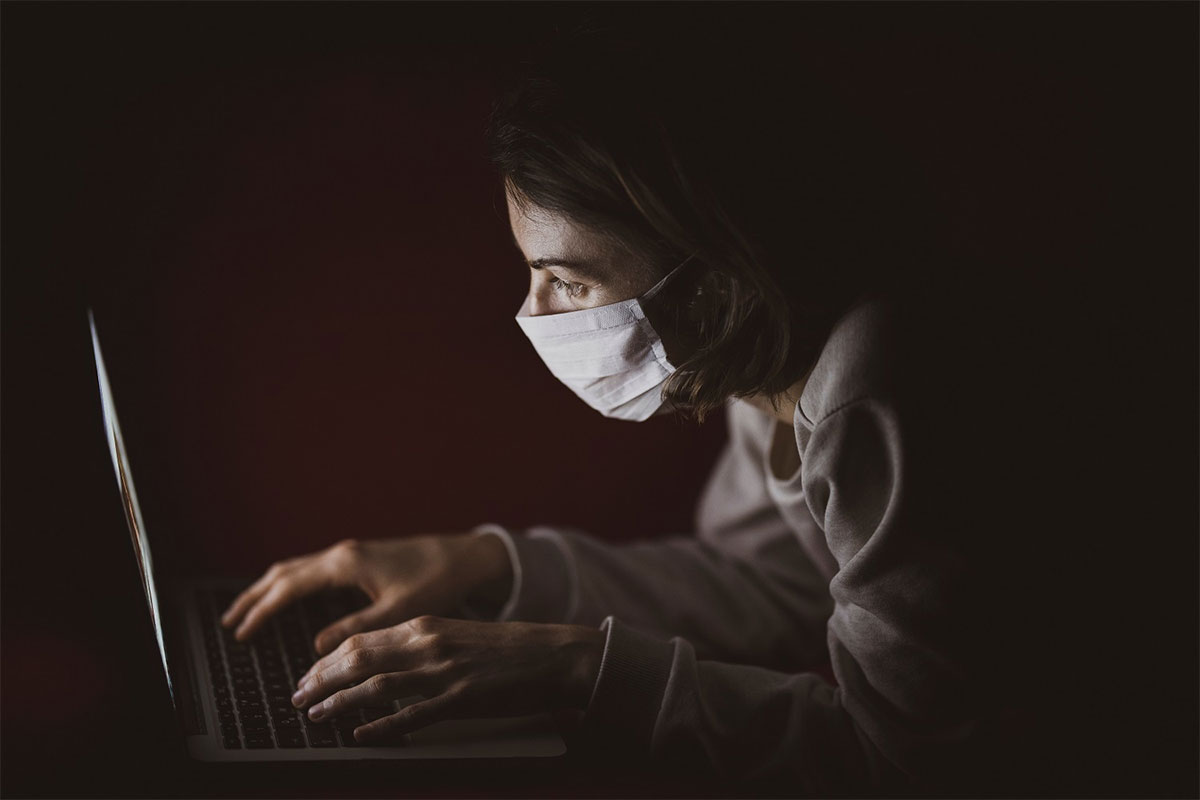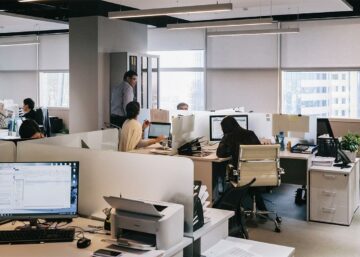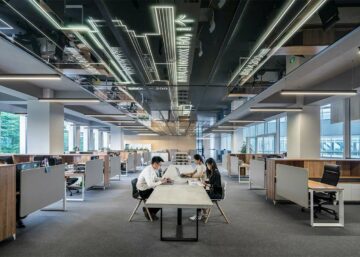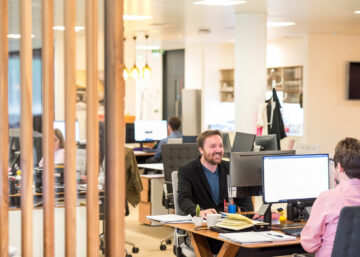Corona Virus is changing a set of paradigms.
Society needed to rethink a set of “acquired data”.
The Planet needed a break, a long time ago.
The “family” needed a new opportunity.
Employees needed to rebalance their activity time, some of them.
Managers needed to rethink social intervention.
Now what?
Society was at an absurd pace, of occupation, even in Portugal, this garden, almost falling from Europe, that everyone is coveting and we want to sell … and suddenly we all have time.
We neither visited, nor saw each other, even when we crossed.
The streets bubbled up with people and cars, taxis and Ubers, bicycles and motorcycles, noises and smells; now they are empty and in a strange silence.
Today, we make promises to visit and take cafes and we want to be with everyone, family and friends. We send fraternal messages of longing and vows of friendship …
After all, we may not need to travel all the time, from here to there, in a rush that suffocates us to live. Now we live.
We even haven’t “realized” this new state yet. Until now, we have always taken for granted that our parents, children, uncles and friends will be there, for when we have time. We have time now and they are not.
Consciously, will we be able to return to freedom of movement, work and living, balancing time and commitment for ourselves and the people we value?
I hope that we return to family values and society conscience that have been diluted in this rush of a thousand clocks without time, of cars and spacious houses without space for us.
We need to continue to equate and judge our own behaviors. Not just because we haven’t seen our parents or children for a few days. Not just because we feel the risk of having no more “jobs” on the way back.
What about our common HOME? Our Planet.
Environmental sustainability is a theme that occupies my mind many times. The care that, privately and socially, we do not have with our “home”; we still leave the “cigarette butts ” and gloves in every corner.
What do we do with the bottle of water we drink? Why don’t we drink “mains water”? Much healthier in every way.
Will we start to be careful with what we leave on the ground after spend some time on the beach or in the countryside?
Even so, have you noticed that the planet has gained breathing capacity? In just a few weeks, Ozone recovered. Venice lost its smell and UV decreased. We can all look at the sky, as Zé Pedro Gomes (the Portuguese singer) would like!
We need to become aware of the impact of our gestures and attitudes and lessen the footprint of our passage here.
It is important that our children still have “nature” to enjoy with our grandchildren, yes! But, even more importantly, they know how to be children of this nature who insist on happily resisting the abuse we continually give them and whom, from time to time, complain about with events or alerts, such as fires in Portugal or from Australia or with protected species dead in the coast.
And in society? Are our actions sustainable?
Distance work was gaining adherents. Whether due to the overcrowding cities and the difficulty in traveling or simply the comfort of staying at home or on the terrace doing the same tasks that would be done in the office; however, not all people yet accepted this change. It will be different from now on.
The change imposed for these weeks forced managers to analyze or measure the work done, not the length of stay in the company. Now there’s not even time in the company!
In other words, it is important for our Leaders to stop controlling working hours and define Performance Indicators. With different levels of relevance, depending on the company moment or season or the state of the team and department.
This is a new concept for some and distant for others.
How to implement? First, define what is supposed to be done, then how it should be done and, finally, what time and means are needed for the referred execution; then it is possible to define the indicators and the respective metrics.
Of course, communication will be even more important now. Clairvoyance, objectivity and directness, or in a word, assertiveness, in the presentation of these indicators, will continue to be decisive for respective acceptance.
Will it work well at first appetent? Probably not, but it is a process, and it has to be put in a coherent way and pursued consistently.
What about Talent Management? Does the manager see the group of people he works with as a team?
Can you gather the individual skills to form the team that produces the desired overall results? Or will you continue to put everything on the “piano charger” and leave the “star” just to socialize?
All elements of a team have strengths and weaknesses, collaborators and managers.
Are we able to identify these strengths and exponentiate them, removing consequent importance from the less strong ones?
Are individual skills development plans set? Performance-oriented and social and professional evolution?
Then managers are turning to Leaders!
And the collaborator? Are they precepting the change?
Are we communicating, the right content, in the right way for the employee to understand? And where are we moving to? If they understand, they will be more cooperative with the company and its manager. They will know that have rights proportional to duties.
Only then will employees perceive team spirit and feel integrated into the organization’s culture.
Another aspect considered in this period was the emotional balance of people.
It is clear that this balance, not only emotional but also social, has an influence on daily performance in all life areas.
We need to have quality time with “ours”, children, parents, spouses, friends, boyfriends, whoever. But until now, we have used this topic only as an excuse, when the results are less good.
Naturally, managers are primarily responsible for what is lived in the workplace, even when work is remote; but now it becomes clear that the employee is co-responsible for the results.
Will we be able to sensibly hold employees accountable for the time balance between family and work? And by the consequent results?
And are we going to or can we start to make positive differentiation with people who are committed? Or will we continue to make everyone equal in the professional category?
Employees should be aware that their “job position” has to be ensured by their performance and not by “contractual bond”.
The development of people in active life is another aspect that deserves my reflection.
Some contemporary authors refer that “today’s literate people are the ones who are able to unlearn and relearn”, that means, it is important to learn throughout life; and much has been said about it.
So, how do we let, or compel, that it is only companies that provide employees with the necessary “training”? Where do stays individual development, career management and personal goals?
Development restricted to what company needs? If is the organization to invest, can we demand more? Is it legitimate to ask for personal and social development?
Companies already have a natural interest in the professional development of their employees. Managers would like all employees to take advantage of the training opportunities available.
35 hours of legal obligation training? It could even be 50 or 100 hours. Does attending a training increase competence? Not at all; or at least, not always!
On the other hand, how many people, in a thousand different ways, improve their competence, individually, preparing themselves, at least for the present, if not for the future. Should we not reward these, at the expense of “liabilities”.
So, for what reason, do public institutions take responsibility away from employees in their (non) development, placing the burden on the employer successively?
We may all have to educate our institutions for social responsibility.
And speaking of institutions. What will happen in our schools after this period?
Shall we keep this model? A Doctor Professor “prelating” (I know that the verb does not exist) to an audience of deaf people who are knowledgeable, not intelligent, 1 time per term or semester? Will they just continue to train people who know how to memorize facts, shapes or paths?
Will we continue to force our 4-year-old “students” to be young, injecting them with different subjects, without allowing them to play and learn to live and be in society?
Are teachers capable of making the necessary changes by themselves?
Are teachers the only ones responsible for a socially required revolution since the last century? Shall we not all have to interfere in each home, in the relationship with each child, young or even adult?
Is it not necessary for supposed pedagogical thinkers to reformulate strategies and methodologies?
Will we be able to redo the concepts, reintegrating minorities and the “different ones”, to complement and improve results?
Are we going to continue to preach that acceptance of diversity brings growth and then format them for equality?
Thinking outside the box brings positive results and why we all have to be the equals, even though they are different in nature? Nonsense! Or Counter-census?
In fact, Covid-19 has forced us to stop and value things differently.
For some, it is just another moment of reflection, for others it is a change or at least the opportunity for … but for some others, it is the beginning of something completely different.
The beginning of a new cycle. Of thoughts and attitudes. Of truths and doubts.
It is from these doubts that certainties are born. It is from these new thoughts that movements are came from and that make growth.
Personal and family growth.
Academic and formation growth.
Social and citizenship growth.
Business and contributory growth.
Let the “Corona virus” affect us, not biologically, but socially and psychologically.
Be the change you want to see in this world.




